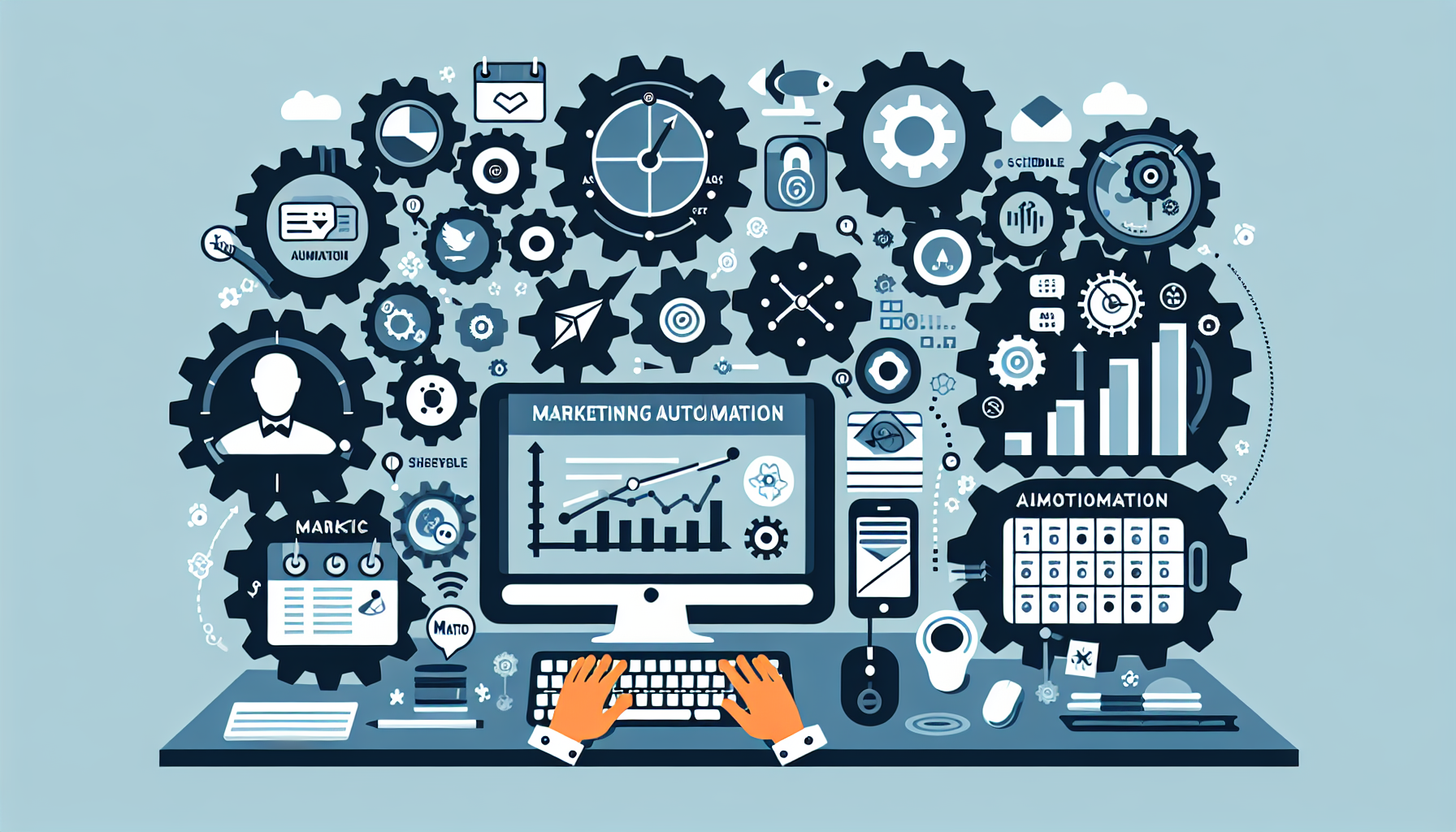The Ultimate Guide to Automating Marketing Tasks for Small Business Owners
Understanding Marketing Automation
Marketing automation refers to the use of software and technology to streamline and automate marketing tasks and workflows. For small business owners looking to maximize efficiency and minimize repetitive tasks, understanding marketing automation is crucial. This approach allows businesses to manage their marketing processes more effectively, enabling them to focus on growth and customer engagement.
Benefits of Marketing Automation
-
Time-Saving: Automating tasks such as email campaigns and social media posting saves valuable time. This enables small business owners to focus on more strategic aspects of their marketing.
-
Consistency: Automation ensures that communications are timely and consistent across all platforms, maintaining brand integrity and improving customer trust.
-
Improved Targeting and Segmentation: Automation tools provide the ability to segment audiences based on behavior and demographics, delivering targeted messages that improve engagement rates.
-
Enhanced Analytics and Reporting: Automated tools offer insights through analytics, making it easier to track performance and return on investment (ROI).
-
Cost-Effective: By streamlining processes, businesses can reduce overhead costs associated with manual marketing efforts.
Identifying Key Marketing Tasks to Automate
Determining which marketing tasks to automate is crucial for the effective implementation of a marketing automation strategy:
-
Email Marketing: Automating email campaigns allows for timely follow-ups, welcome emails, and newsletters tailored to subscriber behavior.
-
Social Media Management: Scheduling posts in advance ensures a consistent online presence without daily effort.
-
Lead Generation: Use automation to capture leads via forms and chatbots, ensuring immediate responses and engagement.
-
CRM Integration: Streamline customer relationship management by automating client interactions and information updates.
-
Analytics Reporting: Automate the generation of analytics reports to assess the performance of marketing efforts quickly.
Choosing the Right Marketing Automation Tools
Selecting the right tools is fundamental:
-
Mailchimp: Excellent for email marketing, offering easy-to-use features for designing campaigns and automating responses.
-
Hootsuite: A comprehensive social media management platform that allows scheduling and monitoring across various networks.
-
HubSpot: Offers a robust CRM with built-in automation features, including lead nurturing and tracking.
-
Zapier: Connects different applications to automate tasks between them, such as pulling information from forms into spreadsheets.
-
Buffer: Focuses on social media automation, allowing users to schedule posts across multiple platforms seamlessly.
Creating Automated Marketing Workflows
To automate marketing efficiently, create structured workflows:
-
Define Your Goals: Set specific, measurable objectives, such as increasing email opens by 20% or boosting social media engagement.
-
Map Customer Journeys: Understand your customer’s journey, from initial awareness to purchase, and identify where automation can enhance the process.
-
Segment Your Audience: Use data analytics to divide your audience into segments based on behaviors, preferences, or demographics.
-
Design Automation Triggers: Establish triggers based on user actions—like downloading an ebook or abandoning a shopping cart—that initiate automated responses.
-
Test and Optimize: Continually assess the effectiveness of your automation workflows, adjusting strategies based on performance data.
Content Creation and Automation
Producing high-quality content consistently can be challenging. Use automation to enhance your content workflow:
-
Content Calendars: Automate scheduling with tools like CoSchedule or Trello, ensuring timely and consistent content publication.
-
Repurposing Content: Use automation to share existing content across different formats—like turning a blog post into a social media graphic.
-
SEO Optimization: Implement tools that analyze SEO performance, automating suggestions for improvements in real-time.
Automating Customer Engagement
Engaging with customers post-purchase is pivotal:
-
Automated Follow-Up Emails: After a purchase, send automated thank-you emails along with suggestions for related products.
-
Feedback Requests: Automatically send surveys or feedback requests shortly after a customer receives their product or service.
-
Loyalty Programs: Use automation to manage customer loyalty rewards, sending notifications for points earned and potential redemption options.
Leveraging Data and Analytics
Tracking the performance of your automated marketing efforts is essential:
-
Use Dashboards: Many marketing automation tools offer dashboards that visualize performance data, making it easy to assess effectiveness.
-
A/B Testing: Automate the process of A/B testing to determine which content or subject lines lead to higher conversion rates.
-
Attribution Modeling: Employ models that assign credit to different marketing efforts, helping pinpoint which strategies yield the best results.
Overcoming Challenges in Marketing Automation
While the benefits are plentiful, small business owners may face challenges:
-
Initial Setup Complexity: Take the time to thoroughly understand the tools and their features, potentially engaging a consultant to assist in setup.
-
Data Management: Ensure data quality and compliance by regularly updating customer information and adhering to regulations like GDPR.
-
Resistance to Change: Involve your team in the marketing automation process, providing training to alleviate apprehensions about adopting new technologies.
Keeping Up with Trends
Staying up-to-date with marketing trends helps keep your automation strategies relevant:
-
Artificial Intelligence (AI): Incorporate AI to enhance personalization in email marketing, chatbots, and customer interactions.
-
Omnichannel Marketing: Create cohesive experiences across multiple channels, allowing for seamless customer engagement.
-
Voice Search Optimization: As voice search becomes more prevalent, automate the optimization of your content for voice queries.
Conclusion
Automating marketing tasks can provide invaluable benefits for small business owners, enabling them to enhance productivity and streamline efforts. By understanding the tools available, defining clear workflows, and staying adaptable to trends, small businesses can effectively implement marketing automation strategies that boost engagement, improve customer relationships, and drive growth. In today’s competitive landscape, leveraging automation is not just an option; it’s a necessity for successful marketing strategies.


